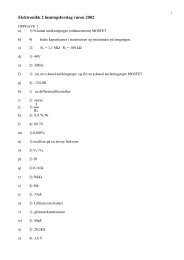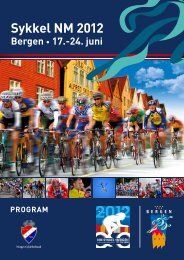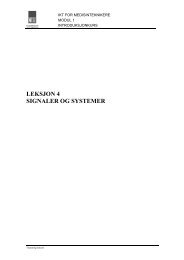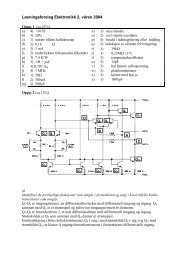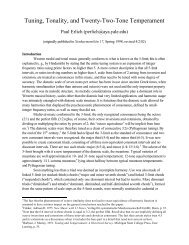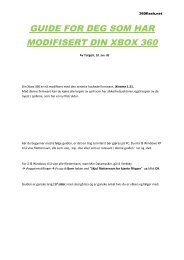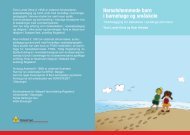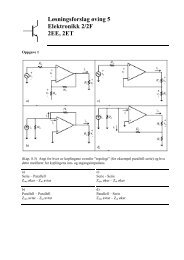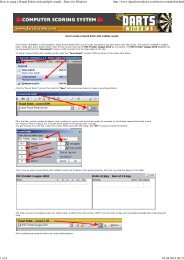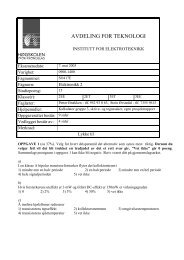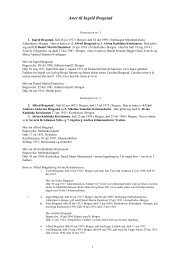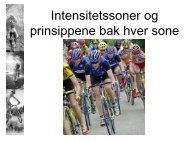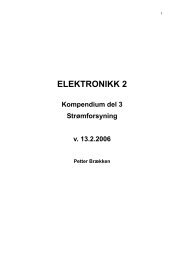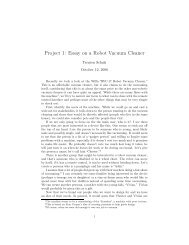The Online World resources handbook
The Online World resources handbook
The Online World resources handbook
Create successful ePaper yourself
Turn your PDF publications into a flip-book with our unique Google optimized e-Paper software.
Automatic communication http://home.eunet.no/~presno/bok/16.html<br />
commands. This MS DOS program helps users set up detailed search commands before<br />
logging on to the LEXIS NEXIS service. Your search results will be downloaded<br />
automatically.<br />
Alternative 4: Offline readers<br />
<strong>The</strong> alternatives above have one important weakness. Noise on the line can prevent the<br />
"robot" from doing the job. All it takes is for noise to give a prompt another content than<br />
is expected by your program or script (as in "En@er a number:" instead of "Enter a<br />
number:").<br />
You can avoid noise problems by using grab or get commands (Chapter 12), and by<br />
making the online service use its minimum prompts ('expert mode') . Still, this does not<br />
give full protection.<br />
<strong>The</strong> best is to let the online service do the navigation. Think of it as logging on to<br />
run a batch file on the remote computer. Combine this with automatic transfers of your<br />
commands, sent in of one stream of data with automatic error correction (in the software<br />
and in the modem), and you have a very robust system.<br />
<strong>The</strong> program logs on to the service. <strong>The</strong>n the service takes over. It registers your<br />
user identity, checks your user profile for personal interests, retrieves and packs all<br />
messages, news and files into one compressed file, and sends it to you at high speed.<br />
Your outgoing messages, search commands, commands to join or leave<br />
conferences, and more, are transferred to the remote computer in a similar packet<br />
(compressed file).<br />
When received by the remote computer, it unpacks the transfer file and distributes<br />
messages and commands to various services following your instructions.<br />
Your "physical" contact with the service is when your modem is disconnected. <strong>The</strong><br />
help menus that you read belong to your program, and not the online service. You read<br />
and respond to mail in a reading module (ref. the term "offline reader").<br />
Some offline readers give the caller access to more tools than is available on the<br />
online service itself. <strong>The</strong>y may have spelling checkers, multimedia support, let you use<br />
your favorite editor or word processor, and offer various storage, search, and printing<br />
options.<br />
<strong>The</strong>y may let you sort incoming conference mail by "threads," and permit you to<br />
place obnoxious writers on a "kill" list.<br />
Using offline readers is probably the easiest, cheapest, and safest way of using<br />
online services. You even risk writing more concise and thoughtful messages. <strong>The</strong><br />
"readers" are popular among bulletin board users, and some commercial services are<br />
also starting to accommodate them.<br />
<strong>The</strong>re are many offline reader programs. <strong>The</strong> most advanced take over completely<br />
upon logon, and manage transfers of commands and compressed information files to and<br />
from the host. (Example: Binkley Term on FidoNet)<br />
Global Link is an offline reader for EcoNet. Bergen By Byte offers the BBS/CS<br />
Mail Grabber/Reader, a script system used with the communications program Telix and<br />
the service's "auto get" function.<br />
NUPOP (MS DOS), Eudora for Windows (Windows and Macintosh), and<br />
WinQVT/Net (Windows) are offline readers for use when calling Unix hosts.<br />
<strong>The</strong> most popular systems on the PCBoard based Thunderball Cave BBS are<br />
Offline Express, Megareader, Session Manager, Rose Reader and EZReader. Freddie is<br />
a reader for Macintosh.<br />
<strong>The</strong>se readers are used with scripts written for various communication programs.<br />
Some of them have built in communications (and script) modules.<br />
EZReader from Thumper Technologies (P.O. Box 471346, Tulsa, OK 74147 1346,<br />
U.S.A.) lets users retrieve mail from several online systems using transfer formats such<br />
as QWK, PCBoard capture files, ProDoor ZIPM files, XRS, MCI Mail, and others.<br />
1stReader from Sparkware (Post Office Box 386, Hendersonville, Tennessee<br />
37077, U.S.A.) is my personal favorite for accessing Qmail based online systems.<br />
Note: Some offline readers contain all the features required for fully<br />
automated communications. Some bulletin boards allow up and<br />
downloading to start right after CONNECT.<br />
7 of 9 23.11.2009 15:49



